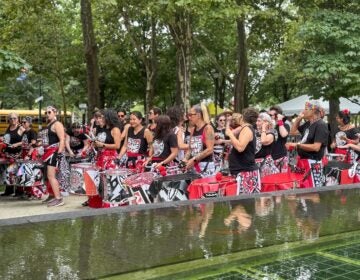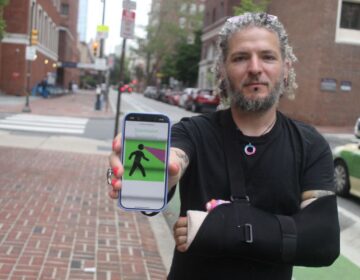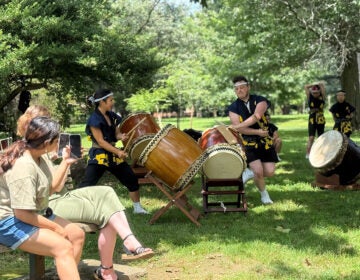Manatawna urban farming banned
Philadelphia City Council recently passed a zoning bill that throws a wrench in the city’s plans for an urban farming initiative at Manatawna Farm.
Philadelphia City Council recently passed a zoning bill that throws a wrench in the city’s plans for an urban farming initiative at Manatawna Farms in Upper Roxborough.
The bill, approved unanimously, establishes the Roxborough Environmental Control District. The zoning overlay prohibits the city’s Parks and Recreation Department from converting five acres of the 76-acre parcel to commercial, chemical-free farming.
About 50 acres of the site are currently used for livestock pastures and hay production by W.B. Saul High School of Agricultural Sciences. The Schuylkill Center for Environmental Education also uses the land for community gardening.
City Council’s Committee on Rules previously passed the measure, which sent it to full council for a vote.
During the committee’s hearing, supporters of the bill testified that commercial agriculture at the farm would negatively impact the environment and the students at Saul High School.
“We need to create more green places, not undermine the ones that already exist,” said David O’Neil, a Roxborough resident and founding member of the Friends of Manatawna Farms.
Christina Kobland, a fellow Friend and owner of the land conservancy company Native Return, explained that commercial farming would disrupt the natural habitats of native species. In particular, it would put migratory field birds like the bobolink and meadowlark, as well as box turtles and bobcats, in jeopardy.
The five acres would be carved out of Saul High School’s 25-acre hay field. Emilio Garcia, a senior at Saul, said the loss of land would put an unnecessary financial burden on the high school and hurt its Farm to Table program, which promotes eating fresh, locally grown food.
“All of the livestock depend on Manatawna’s hay,” said Garcia.
At the same hearing, Fairmount Park officials, who manage the land, argued that the city’s plan to create 10 half-acre farms at Manatawna would not disturb the grassland’s native plants and animals.
Executive Director Mark Focht said there has been an overwhelming interest in the project from residents. He added that the land presents the city with the rare opportunity to fulfill its goal of improving access to fresh, local produce through its Greenworks Philadelphia program.
“One of the most significant constraints of urban farming in Philadelphia is access to high quality agricultural land which will not change in ownership or use,” said Focht during his testimony.
Fourth-district Councilman Curtis Jones, who sponsored the bill, said he supports the city’s efforts to expand urban agriculture, but not at Manatawna Farms.
“Fairmount Park controls over 2,000 acres of farms and why those five acres of farm are so important is a mystery to me,” Jones said. “It’s amazing to me that the only place, in the city of Philadelphia that can grow a vegetable is Manatawna farms.”
The property is currently zoned residential, which permits agriculture and horticulture initiatives, but bars any kind of commercial farming.
William Kramer with the Philadelphia Planning Commission testified that the overlay is redundant and unnecessary. Focht added that the establishment of the Roxborough Environmental Control District only creates an additional hoop to jump through.
WHYY is your source for fact-based, in-depth journalism and information. As a nonprofit organization, we rely on financial support from readers like you. Please give today.




